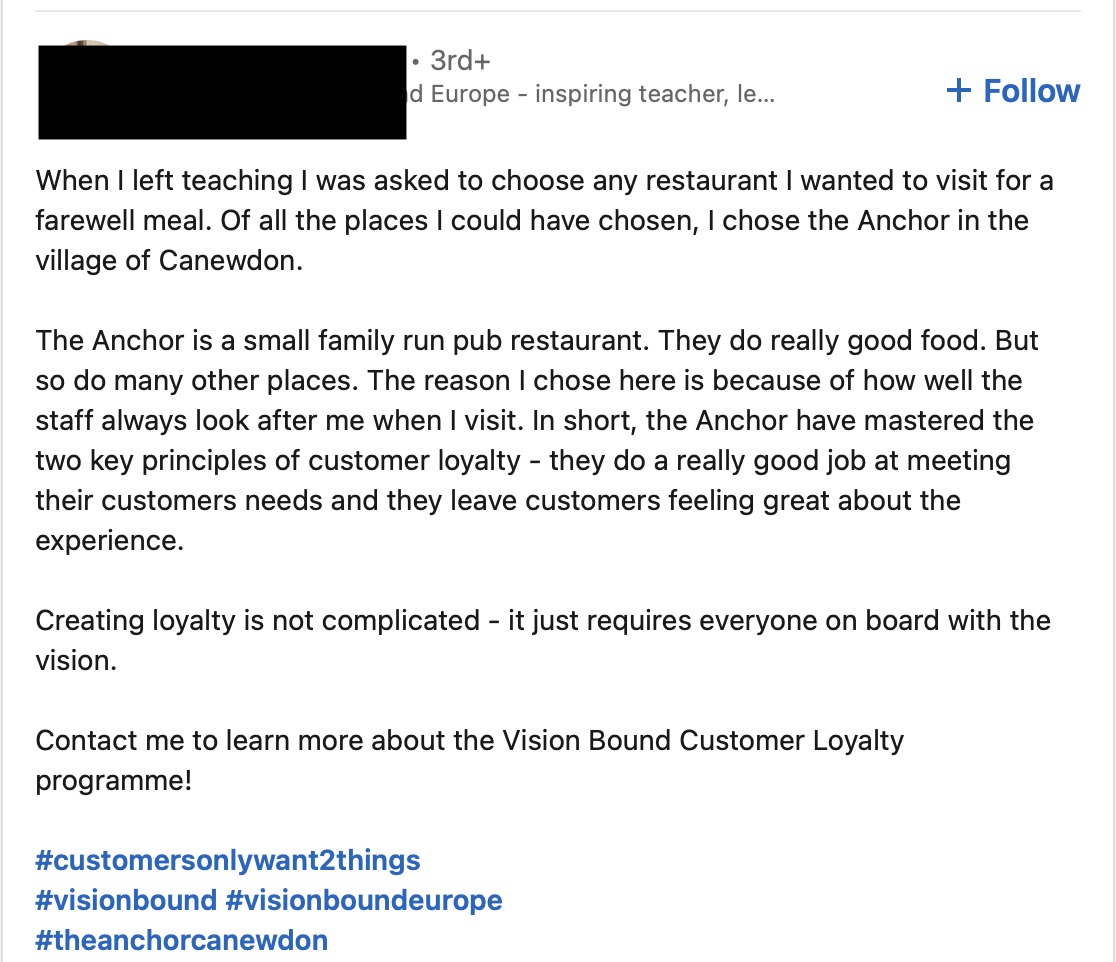this post was submitted on 11 Oct 2024
150 points (96.9% liked)
LinkedinLunatics
3709 readers
5 users here now
A place to post ridiculous posts from linkedIn.com
(Full transparency.. a mod for this sub happens to work there.. but that doesn't influence his moderation or laughter at a lot of posts.)
founded 2 years ago
MODERATORS
you are viewing a single comment's thread
view the rest of the comments
view the rest of the comments

It’s an elision which is common in many English dialects and totally out of place in others. A more common form of this that always feels incomplete to me is “needs washed,” but in both cases, “to be” is elided (omitted).
I've heard "needs washed" and also consider it ungrammatical, but I also understand it. So I might say something like "everyone on board" or "needs washed" in conversation, but I wouldn't do it in writing, especially more formal writing like this where someone is running a business and soliciting work.
While this is writing, it's not formal, it's a marketing ad directed less than savvy want to be entrepreneurs... It's meant to be sales speech.
Right, and a sales speech should be somewhat formal. It's not like an essay or legal appeal, but it should be a lot more formal than a discussion at a backyard BBQ or whatever.
I don't know. I think it gets the point that the writer is a marketing or sales idiot across quite clearly if the grammar is bad too.
It’s more accepted in different areas, but this doesn’t seem at all out of place to me. I’m curious if other examples would sound incorrect to you (no pressure if you’re not looking for an interview):
With his friends by his side, he felt safe
he needed his friends by his side to feel safe
she wasn’t comfortable with him at the wheel
She identified the person at the wheel before proceeding to the booking office and making her report.
He was unable to access all of the documents in the file.
Those all seem fine. The third is a little colloquial and I'd say "She wasn't comfortable with him driving" to make it clear what the issue was. But the rest don't really need a verb, for example:
"Everyone on board" is using boats as an analogy, and it should be clear what the desired action is that needs to be taken (i.e. remain on board vs get on board). The verb there is pretty significant because it defines what action needs to be taken to get to the desired end state (everyone being on board). Most of the time, I hear, "we need to get everyone on board" instead of "we need everyone on board" because the action tells the listener what they should be doing.
Anyway, that's my take. In an informal setting (e.g. discussing over lunch or at someone's desk), use whatever. But in a more formal setting (soliciting business, presenting at a meeting, etc), I expect more precise language.
You can expect it all you like, but other dialects are going to dialect. I don’t personally see any difference between the example in the post and the examples I gave, possibly because I hear “be on board” as much as or more than “get on board” or “stay on board,” the same way I hear “be behind the wheel” more than “get behind the wheel” or any other variants. Thanks for the insight into a different dialect!
Yeah, no worries!
And it's not something I'd point out in person, I'm just pointing it out here in response to someone else. My SO is not a native speaker, and I work with non-native speakers, and I live in a different part of the country than I grew up, so I'm definitely used to different dialects.